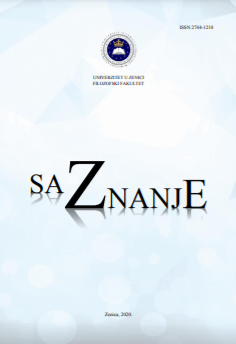BENEFITS OF STUDYING CHILDREN'S LITERATURE IN FOREIGN LANGUAGE COURSES AT UNDERGRADUATE LEVEL
BENEFITS OF STUDYING CHILDREN'S LITERATURE IN FOREIGN LANGUAGE COURSES AT UNDERGRADUATE LEVEL
Author(s): Vesna SuljićSubject(s): Education, Foreign languages learning, Studies of Literature, Higher Education
Published by: Filozofski fakultet, Univerzitet u Zenici
Keywords: children’s literature; undergraduate courses; foreign languages; teaching;
Summary/Abstract: Children’s literature has been undeservedly neglected by universities which offer undergraduate foreign language courses in Bosnia and Herzegovina. Knowledge of children’s literature is particularly relevant to the prospective teachers of a foreign language (L2) who will work with learners ranging from pre-school to high school. As future teachers and instructors of L2, they might use texts from children’s literature in the classroom. They can thus assist learners to approach learning of L2 in a way similar to learning their L1 – through reading or listening to various literary texts - and foster students’ reading habits in general. Knowledge of children’s literature texts in L2 can also assist teachers to develop critical insights about the learners’ language learning process, which can enhance their language teaching competencies. Using transactional activities for communicative purposes is one way of teaching a foreign language. However, the teacher’s familiarity with children’s literature texts appropriate for the learners’ level can be viewed as a significant asset in assisting learners to attain competences in second language acquisition. As learners have access to different writing styles, texts, or vocabulary in L2, it can also boost their imagination as well as contribute to the development of their critical reading, listening and writing skills through sharing their feelings and ideas and through involvement in other communicative activities based on the texts they read. Moreover, many books from this genre have been adapted for the film, theatre or musical productions, which could also be used to explore more works by other authors for children. This paper presents arguments exemplified by evidence from teaching students at the English Language Department at the International University of Sarajevo to reaffirm the importance of inclusion of children’s literature in undergraduate courses of foreign languages in Bosnia and Herzegovina and elsewhere where it is not offered in the curricula.
Journal: saZnanje
- Issue Year: 2/2020
- Issue No: 2
- Page Range: 510-523
- Page Count: 14
- Language: English

